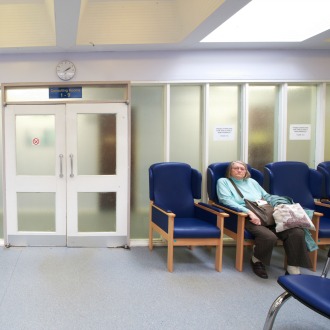Number of whole-time equivalent GPs falls by 2.4%

The number of GPs in Scotland has fallen, with 90 fewer whole-time equivalent (WTE) GPs in 2015 compared to 2013 according to the Primary Care Workforce Survey, published today.
There were 3,645 WTE GPs in Scotland in 2015, down from 3,735 in 2013, a 2.4% drop.
In contrast, WTE nurses in general practice increased by 2% in the time period (from 1,420 to 1,455) and WTE healthcare support workers increased by 23% (300 to 365).
The survey also found that over a third of GPs in Scotland are over 50 – although this varied by gender, with 47% of male GPs aged over 50, but only 29% of female GPs over 50.
In terms of out-of-hours work, the survey found that all health boards apart from Shetland have had to take actions (normally staff working longer shifts) because they were unable to fill all GP shifts, with nine boards having to do this at least weekly.
Dr Alan McDevitt, chair of the Scottish GPC, and a GP in Clydebank, said: ‘This survey illustrates the extent of the problems that are currently facing primary care. GPs are choosing to leave the profession and those that remain are facing an increasingly unmanageable workload. Without significant funding invested specifically in general practice recruitment and retention, the situation will only get worse.’
According to Dr McDevitt, general practice is now ’facing some of its toughest challenges, with workload and patient demand at unprecedented levels’.
’Our members across the country are telling us of the rising pressure they are facing and the difficulties they are having trying to recruit to vacant posts. This is simply not sustainable,’ he added.
Dr Miles Mack, chair of RCGP Scotland, said: ‘We now need even more GPs than we did this time last year, despite the years in which our public campaign has been illustrating the situation to Scottish Government and receiving significant public backing. It is frustrating and worrying that those warnings have not been heeded.
’We are concerned that the 100 extra GP training places promised in October 2015, to start this current year, have not come about and that we have yet to hear a timescale for their delivery. 20% of last year’s training places went unfilled. We need urgent measures to make sure those places are available and taken up.’
This comes after GP numbers also dropped by 2% in England last year and Pulse reported that around one in eight GP posts in the UK are vacant.
Pulse October survey
Take our July 2025 survey to potentially win £1.000 worth of tokens











